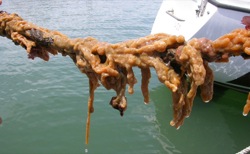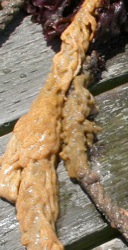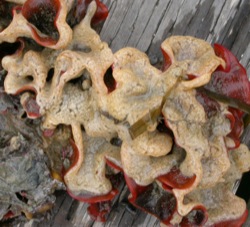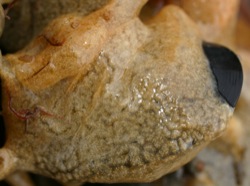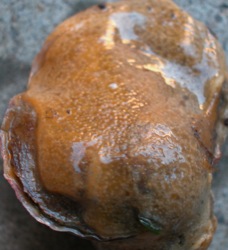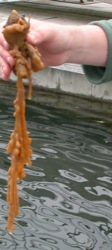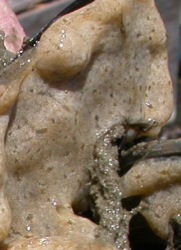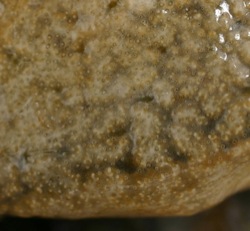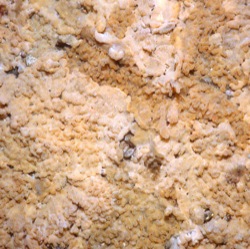Didemnum 6-pendulous colony, Bodega
A pendulous specimen of
Didemnum sp. A from Bodega Harbor.
Return to Top
Didemnum 5-on Ostrea lurida
Didemnum sp. A covering a native oyster (
Ostrea lurida) in San Francisco Bay.
Return to Top
Didemnum 4-on mussel
Didemnum sp. A overgrowing a bay mussel (
Mytilus trossulus-
galloprovincialis) in San Francisco Bay.
Return to Top
Didemnum 3-on Watersipora
Didemnum sp. A covering a bryozoan (
Watersipora subtorquata) in San Francisco Bay.
Return to Top
Didemnum 2-colony on rope, Sausalito
Didemnum sp. A growing over a rope at Sausalito.
Return to Top
Didemnum 1-massive colony on rope
A massively lobate colony of
Didemnum sp. A growing on a rope at Sausalito in San Francisco Bay.
Return to Top
Didemnum sp. A
A colonial sea squirt in the genus Didemnum, which forms extensive sheets overgrowing a variety of substrates and attached organisms, has been found in a number of bays and harbors on the Pacific Coast of North America since 1993. The identity of this species is not yet known. A Didemnum with the same appearance and habits also showed up and spread along the New England coast since the late 1970s, in northern Europe since 1991, in New Zealand since 2001, and has apparently been present in Japan for several decades.
Return to Top
Botryllus schlosseri Image 12-detail with small oval blobs
Detail of a colony from the previous photo, with many small oval blobs around the outer rim of the colony, which are the pigmented ends of blood vessels.
Return to Top
Botryllus schlosseri Image 11-young colonies on mussel
Young
Botryllus schlosseri colonies, each consisting of a single system of 1-10 zooids, on a bay mussel (
Mytilus trossulus/ galloprovincialis complex) in San Francisco Bay.
Return to Top
Botryllus schlosseri Image 10-detail, with systems of 5-13
Detail of colony in previous photo, with systems of 5-13 zooids. The zooids are unusually long and slender.
Return to Top

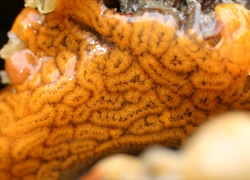 Botrylloides violaceus
Botrylloides violaceus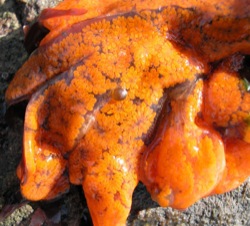 Botryllus schlosseri
Botryllus schlosseri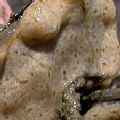 Didemnum sp. A
Didemnum sp. A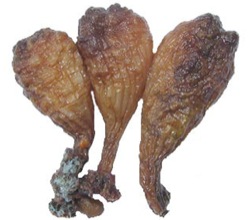 Styela clava
Styela clava